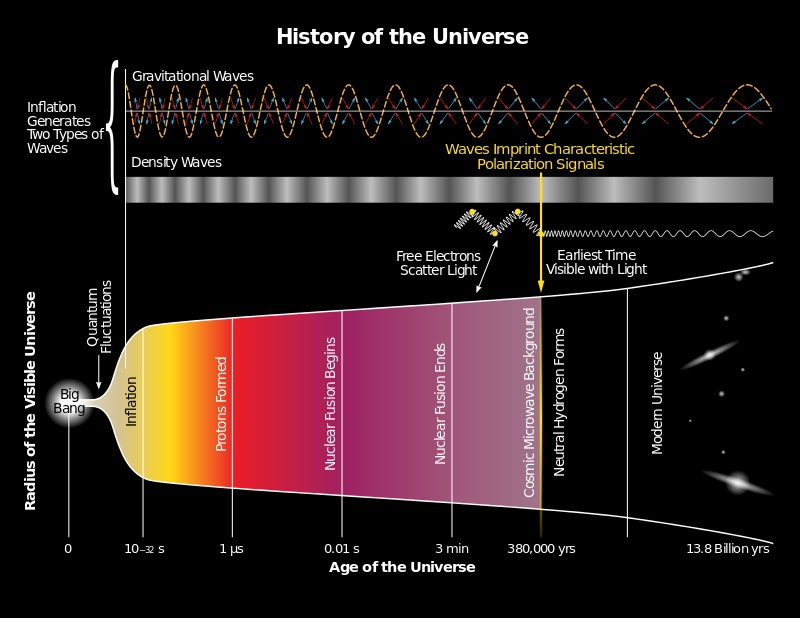He Contributed To The Theory Of Cosmic Inflation
The Universe underwent exponential inflation following the Big Bang. The energy then changed into matter and radiation as it slowed down. However, certain space bubbles stopped expanding or slowed down on a stopping trajectory, according to the notion of eternal inflation, producing a small fractal dead-end of static space. Meanwhile, due to quantum phenomena, inflation continues unabated in other space-time bubbles, creating an endless number of multiverses.
According to this idea, the entire observable Universe is made up of only one of these bubbles, where inflation has ceased and star and galaxy formation is possible. According to "the conventional theory of everlasting inflation," which Hawking described, "our universe is like an infinite fractal, with a mosaic of distinct pocket worlds, separated by an expanding ocean."
Cosmic Inflation, a theory in physical cosmology first put forth by Alan Guth in 1980, contends that after the Big Bang, the cosmos first expanded exponentially before slowing down. Now, most people accept it. One of the pioneers in calculating the quantum fluctuations produced by Cosmic Inflation and demonstrating how they might be responsible for the distribution of galaxies in the universe was Stephen Hawking.










